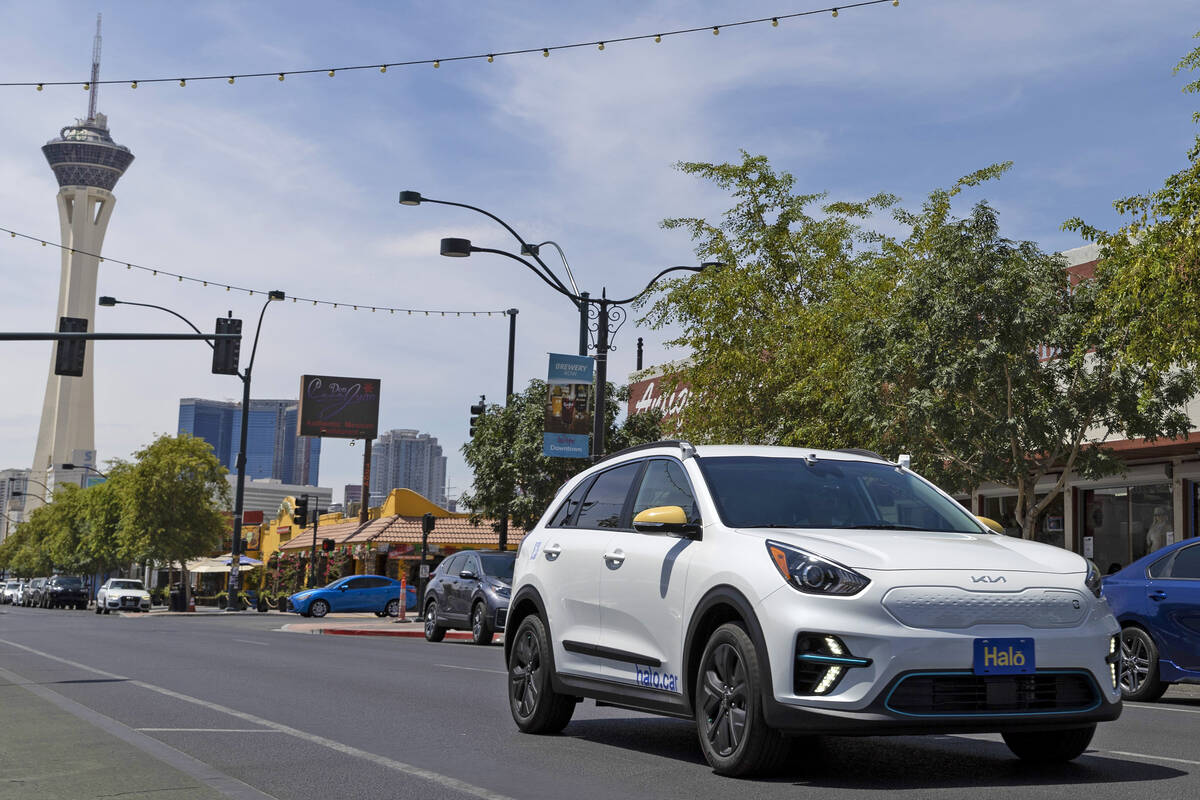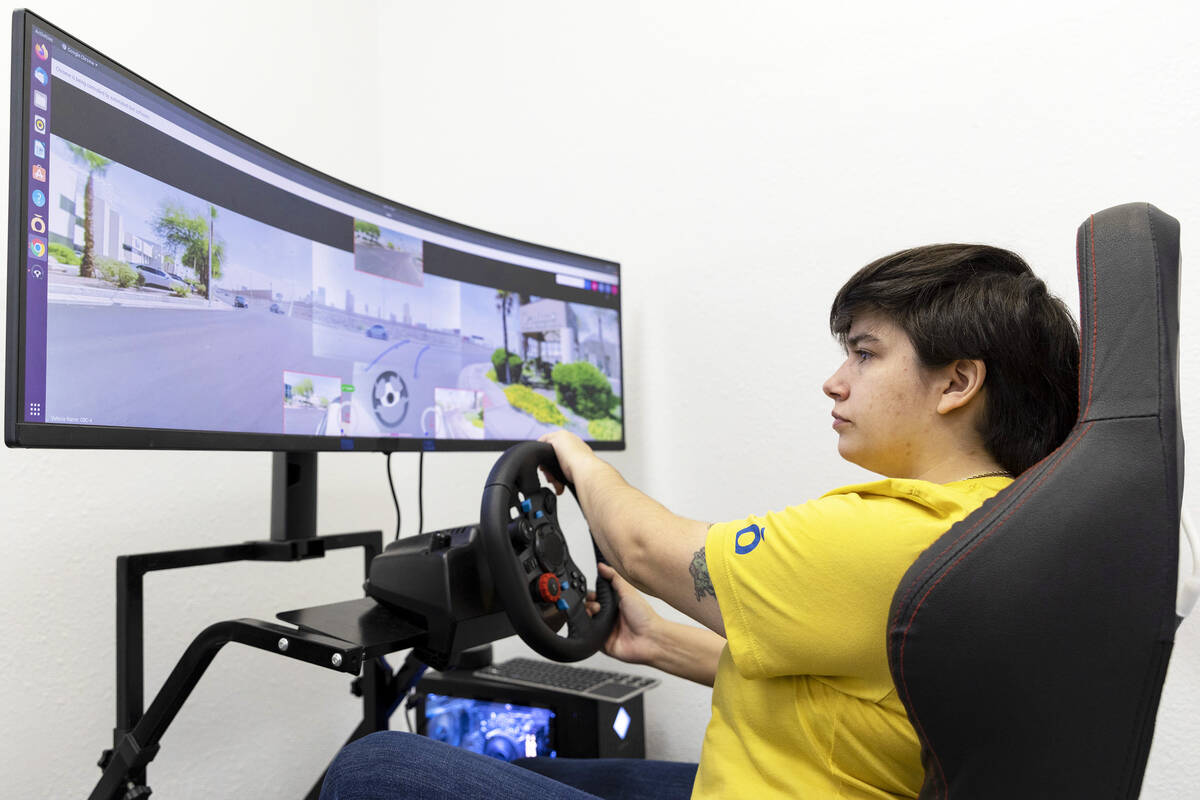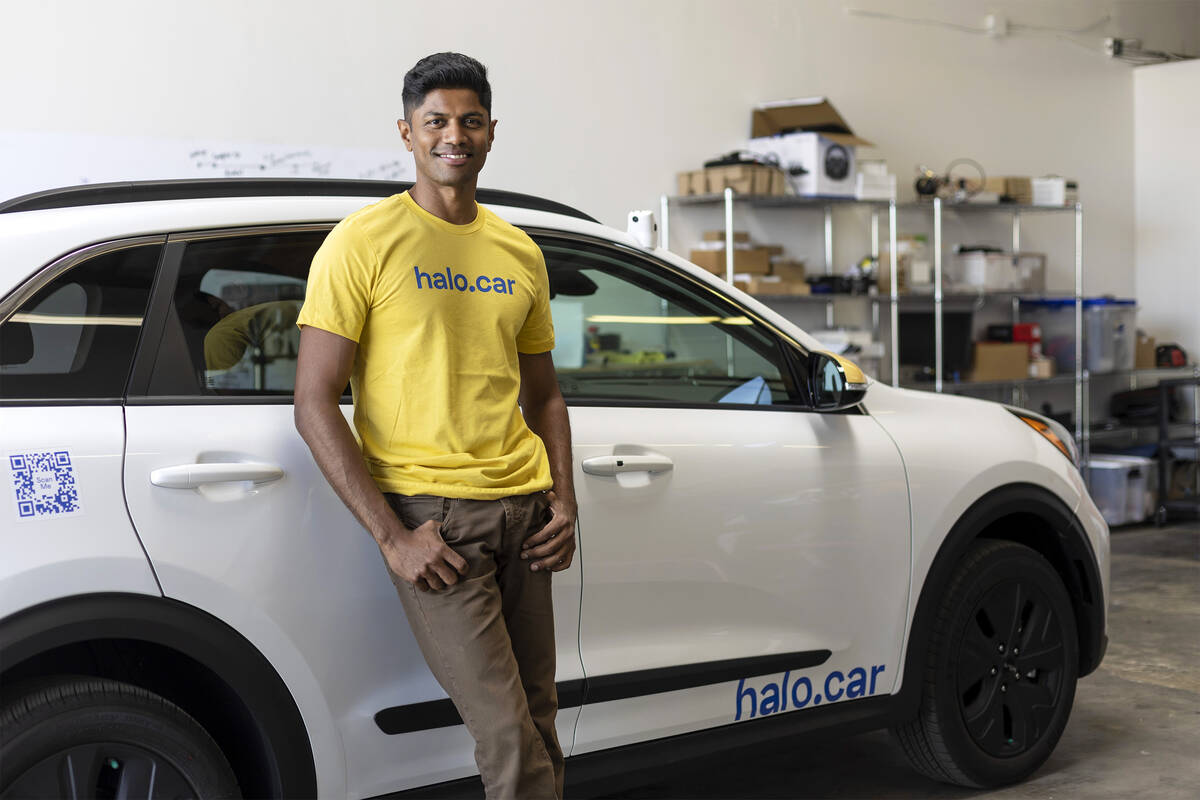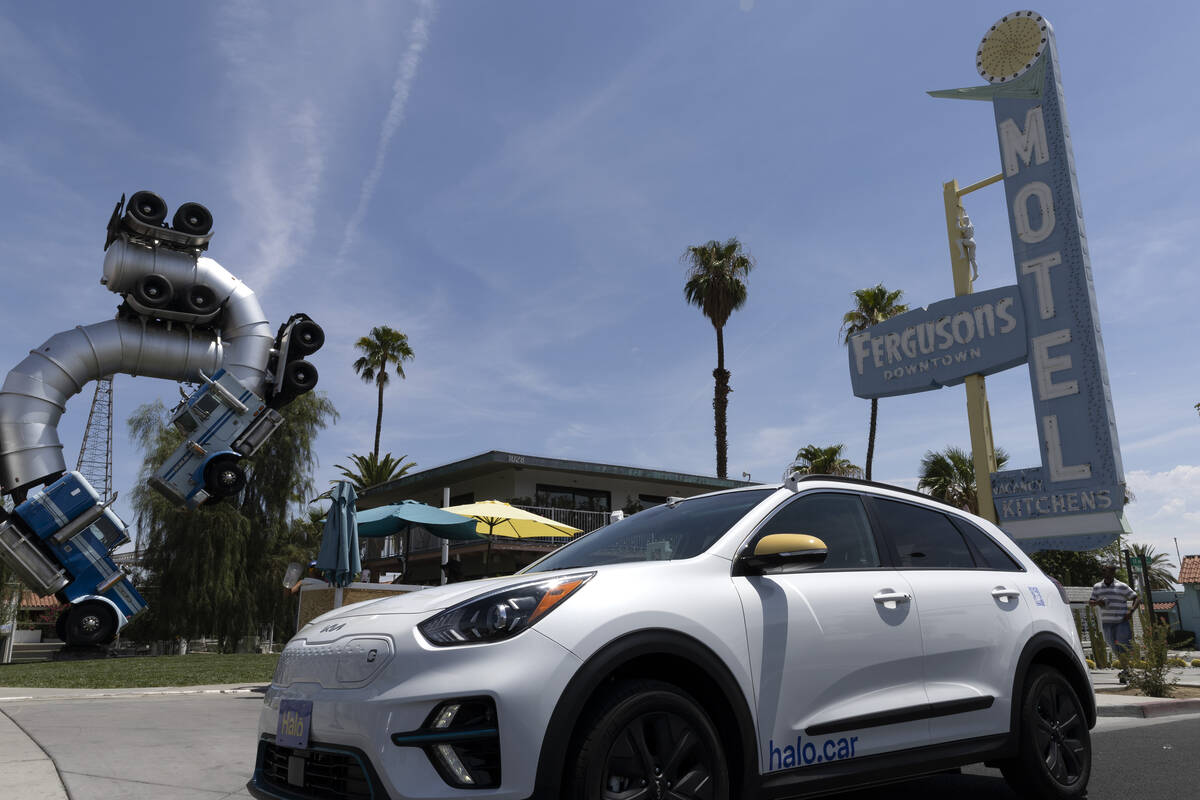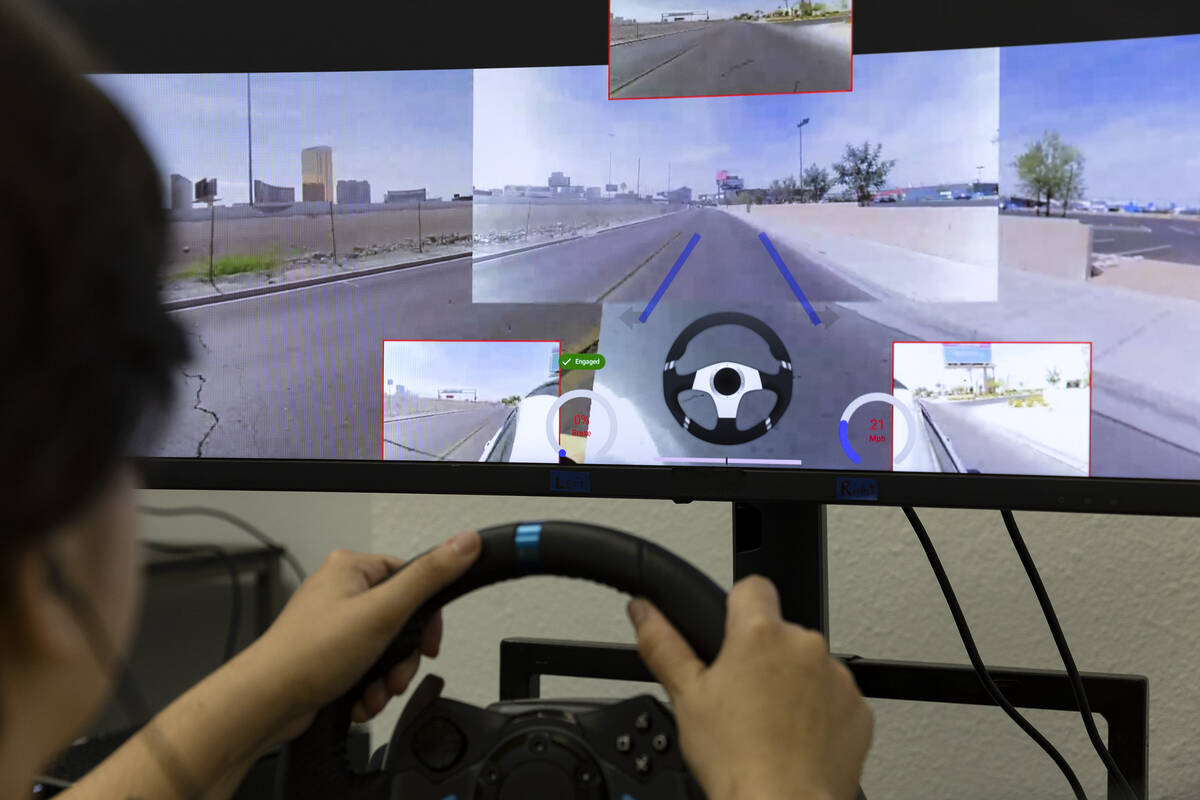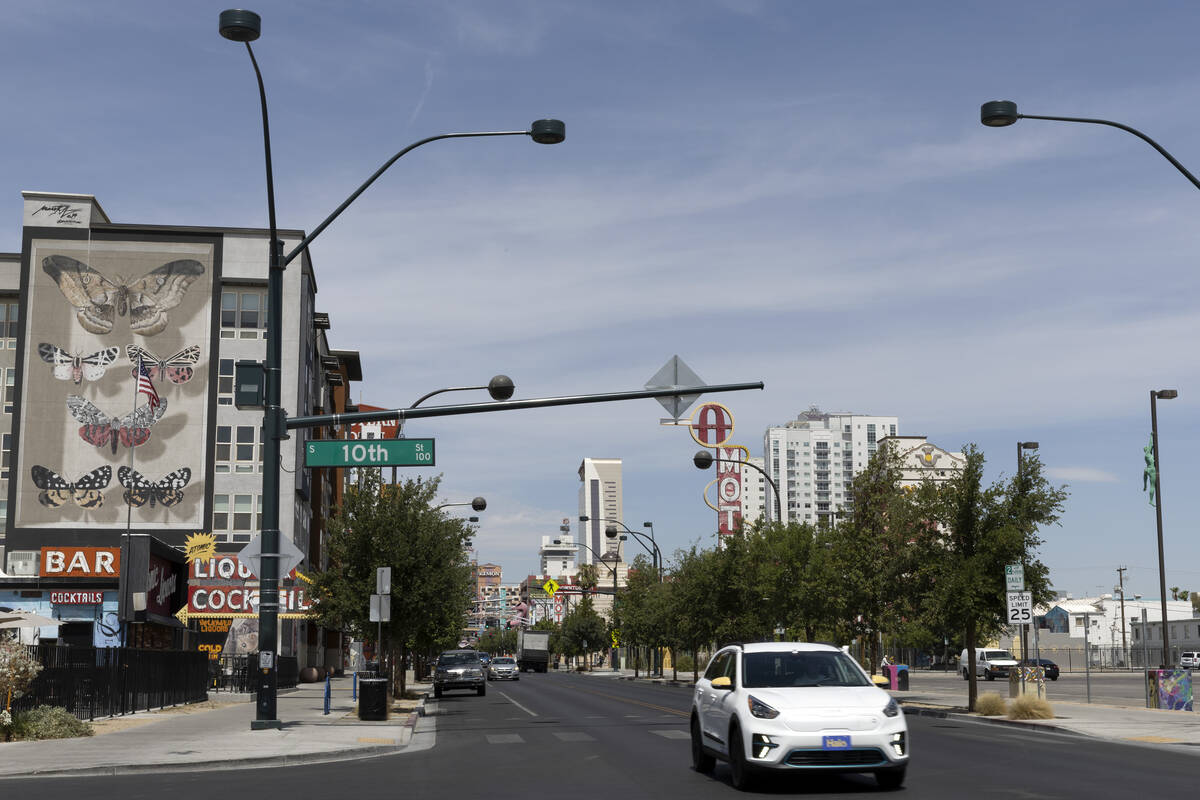Las Vegas startup launches driverless car rental service
Las Vegas-based startup Halo.Car launched a transportation service this week that allows customers to rent cars piloted by a remote driver, operating the vehicle from Halo.Car’s office.
The service, which is temporarily free, is in its testing phase and only available in the downtown Las Vegas area. The remotely driven cars will also have a safety driver inside, in case any problems arise.
The electric vehicles are controlled through six cameras that stream video directly to the remote pilots at Halo.Car’s office, and the pilots’ workspace looks similar to an arcade game with a steering wheel, pedals and large computer screen.
Halo.Car founder and CEO Anand Nandakumar says the Halo.Car delivery service will only use EVs and hopes to make a positive impact on the climate while making EVs more accessible to the public.
“There’s a big problem with electric cars today, which is the only way consumers get access to electric cars (is) via private car ownership, which means oftentimes that you have to fork out $40,000,” Nandakumar said.
The price of electric vehicles are nearly 40 percent higher than gas powered vehicles, according to Kelly Blue Book. The average price for an electric car in May 2022 was more than $65,000 while the average price for a new car was about $46,500
Halo.Car is starting with three cars operating within a 1.25-mile area in the Arts District, according to Nandakumar.
Remote car pilot Antonella Siracusa-Rosa said it’s easy for drivers to switch the controls from one car to another.
“Switching cars is like switching tabs on your computer,” Siracusa-Rosa said.
Siracusa-Rosa said she has been training to pilot the cars for the past four months and has been driving on city streets for the past month. She said the main challenge is navigating around unexpected events, such as when pedestrians don’t use a crosswalk or cars pop out of driveways or side streets.
Shashi Nambisan, director of UNLV’s Transportation Research Center said humans are still better at responding to road hazards than self-driving computer software.
“We are able to discern and make decisions in a matter of seconds, while we need to train the vehicle and the sensors on the vehicles to recognize millions of possible stimuli and then come up with a decision-making process,” said Nambisan, who also advised Halo.Car on technical issues.
He said companies using novel technologies such as remotely-driven vehicles need to be patient in order to build trust and awareness among consumers. He also said Halo.Car needs to be cautious not to move too quickly on operations.
“All it takes is one mishap to mess up the credibility of the organization,” Nambisan said.
Nandakumar said the company is being cautious with an initial 1.25-mile operating zone with low speed limits. He said the company won’t move forward if too many problems appear during its beta test launch.
However, if the rollout goes smoothly this summer, Halo.Car will operate without safety drivers, expand its operations and add up to 50 cars to its fleet by the end of the year, according to Cass Mao, the company’s chief strategy officer.
By next year, if things continue to improve for Halo.Car, there could be hundreds of cars in its Las Vegas fleet. It will also look to expand to cities such as Los Angeles, San Francisco, Seattle, Miami and New York.
“There needs to be a strong market from the perspective of customer interest and a strong market perspective of regulators’ support,” Mao said.
Contact Sean Hemmersmeier at shemmersmeier@reviewjournal.com. Follow @seanhemmers34 on Twitter.



